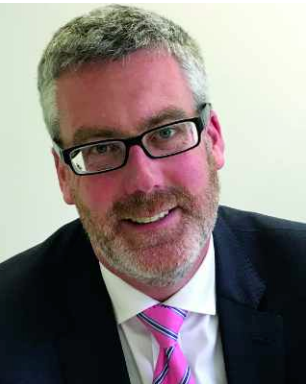CIPFA’s has a new director of education and lifelong learning. Chris Glennie joins the institute after a stint at the Institute of Risk Management, where he was Chief Operating Officer. As well as working for ICSA he was also interim head of product development and e-learning at AAT in 2012. The University of Oxford modern languages graduate has also published a book.
His ‘Looking for America’ recounts his drive across the US and his love of history. It even got a five-star rating when we reviewed it in July! His career in professional associations follows some 20 years in academic and educational publishing, where he worked for such companies as Prentice Hall, Macmillan and Granada Learning.
If you have ever had to use a Letts Revision Guides, then you can blame Glennie, he was the publishing director of that series. What it does also mean is he has that product development is very much in his blood. “Developing products for an educational market is just something I keep coming back to.” That’s a handy skill to have when a new syllabus needs developing!
Developing a new syllabus
He joins CIPFA at an exciting time. It is just beginning to shape and renew its core accountancy qualification; we are talking CIPFA 2020 here. Glennie and the team are now deep into phase one – where they need to ask some very direct, and some indirect, questions.
It also means listening between the lines, and finding out exactly what the market needs from today’s and tomorrow’s public finance professional. “We need to re-engage with the market and reflect the needs of learners and employers,” he said. There will be some obvious changes needed, but he wants to fight against preconceived ideas of what the future holds.
Glennie stressed: “We can’t let prejudices get in the way.” He also believes CIPFA needs to widen the net when trawling for ideas. Of course local government will be a big contributor, but he also wants the health services, and police and fire services to come forward.
Not an elitist club
Glennie is well aware that today’s CIPFA students are more demanding about the exams process, and will be quick to point out any mistakes. The relationship between professional bodies and their students is changing, and he believes CIPFA is at the forefront of ensuring the ‘student experience’ is the best it can be.
The student society network is a real bonus here, and he knows not every accountancy body has such an active and thoughtful resource.
He also stressed that while professionals need to do their thing, that doesn’t mean they should go about creating a club of elite people in the process. Today’s modern chartered bodies should not be viewed in the same way as their 1950s/1960s counterparts.
Today, with the use of apprenticeships and a dynamic qualification, he believes CIPFA helps create people who can thrive in the public sector environment and be economically useful. Glennie explained: “We do need to impress on the market that CIPFA is and always will be the most appropriate accountancy qualification for the public sector. We should not be distracted from that simple message.”




